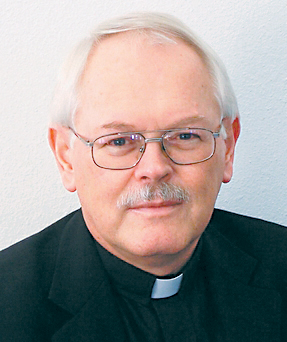One of the most ancient problems in philosophy is the question of ‘the one and the many’, whether reality is ultimately a unity or a plurality and how these interrelate. We might ask the same question regarding the plurality of religious faiths, churches, and forms of worship in our world. Is there some inherent oneness there or is it all plurality without anything binding us together in some kind of community that transcends our differences?
At the risk of being misunderstood, here’s my perspective. All of us in the world who have a sincere belief share a common faith because ultimately we share a common God. Moreover, since we share a common God, we also share a common problem; namely, we struggle equally in trying to conceptualize this non-conceptualizable God. The first dogma about God in all valid religions is that God is holy and ineffable, meaning that God cannot ever be circumscribed and grasped in a concept. By definition, it is impossible to capture infinity in a concept (like trying to have a concept of the highest number it is possible to count to.) Since God is infinite, all attempts to conceptualize God fall short.
All legitimate faiths have this problem in common, and this should keep us humble in our religious language. Further still, beyond our common struggle to have a concept of God, we also all struggle to understand God as actually loving universally and unconditionally. All religions and all denominations struggle not to make God tribal, biased, and lacking in full love and understanding. In Christianity, Judaism, and Islam, for example, where we all believe in the same God, we also all tend to conceptualize that God as male, celibate, and frowning most of the time. Not exactly the ineffable, unconditionally loving God of revelation.
So what’s our task? Our task as believers is to move towards an ever-deepening empathy with each other, across all denominational and religious lines. That is the real route for ecumenical and interfaith dialogue. At the risk of sounding heretical or disloyal to my own faith tradition, I say this. Our task is not to set out to make converts, to try to persuade others to join our own church. Our task is to enter ever more deeply, faithfully, and lovingly into our own church and denomination, even as we strive to be in deeper empathy with all others who worship God in ways different than we do.
The renowned ecclesiologist Avery Dulles taught that the way forward for Christian ecumenism and interreligious dialogue is not the way of conversion, of trying to get others to convert to our particular church. The way forward (in his words) is the way of “progressive gradualism”, namely, of each of us being ever more faithful to God within our tradition so that as each of us grows closer to God (and, for Christians, to Christ) we will grow closer to each other and to all people of sincere faith. The unity we seek lies not in one church or faith community eventually converting all others to join it, but in everyone of sincere faith becoming progressively more faithful to God so that the unity we desire can take place sometime in the future, contingent on our own deeper fidelity inside our own faith tradition.
Our task then is not that of trying to convert others to join our own church, but of moving more deeply into our own church, even as we strive to be in an ever-deeper empathy with other churches and other faiths. We need to be brothers and sisters to each other, recognizing that we already have a shared God, a shared humanity, and shared heartaches.
I work in a doctoral program in spirituality that draws students from many different Christian denominations. During the five years of their program, these students study together, socialize together, commiserate together, and pray together (though only occasionally in a formal church service). Interestingly, during the ten years, we have had the program; we have not had a single conversion of one person to another denomination. Rather, every one of our graduates has left the program with a deeper love and understanding of his or her own tradition – and a deeper love and understanding of other faith traditions.
This does not imply that all religions are equal, but rather that none of us is living out the full truth and that the path forward lies in a deeper personal conversion within our own faith and a more empathic relationship to other faiths.
I leave you with a poem, my own – The One and the Many
Different peoples, one earth
Different beliefs, one God
Different languages, one heart
Different ways of falling, one law of gravity
Different energies, one Spirit
Different scriptures, one Word
Different forms of worship, one desire
Different histories, one destiny
Different strengths, one fragility
Different disciplines, one aim
Different approaches, one road
Different faiths – one Father, one Mother, one earth, one sky, one beginning, one end.







